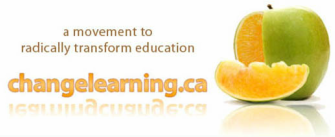(Source: Canadian Council on Learning)
Link:
https://www.childcarecanada.org/documents/research-policy-practice/17/11/let-children-play-natures-answer-early-learning

|
|
|
Play enhances every aspect of children’s development and learning, however, it is increasingly rare for children to have long, uninterrupted blocks of time to play indoors and outdoors, by themselves or with their friends. Although children learn to play naturally, we all have a role in ensuring that children have enough time and opportunity to play.
(Source: Canadian Council on Learning) Link: https://www.childcarecanada.org/documents/research-policy-practice/17/11/let-children-play-natures-answer-early-learning
2 Comments
Play enhances every aspect of children’s development and learning, however, it is increasingly rare for children to have long, uninterrupted blocks of time to play indoors and outdoors, by themselves or with their friends. Although children learn to play naturally, we all have a role in ensuring that children have enough time and opportunity to play.
(Source: Canadian Council on Learning) Link: http://www.ccl-cca.ca/CCL/Reports/LessonsInLearning/LinL20061010LearninPlay.htm Schools can’t do it alone.
If we truly want to provide the best learning opportunities for our kids, education needs to be more like a three-legged stool – with the structural support of home, school and community all working together. But here’s the thing. If all three legs are strong and equal, the stool is perfectly stable and functional. If one of the legs is damaged or removed, the stool can’t hold any weight. It can’t do its job, no matter how much we try to patch and reinforce the remaining legs. Read more Our society has undergone radical shifts in everything from family structure to demographics to where and how families and children spend the majority of their time. Canadian schools, first developed in the context of the family farm and small town, have struggled to respond to the massive shifts that have taken place in how children are living their lives outside of the classroom walls.
Read more Most people understand that the early years are an important time in a child’s development, but recent research is painting a startling picture of how the experiences and interactions that occur from conception to age six drastically affect the trajectory of children’s lives, their success in school and who they will become as adults.
Read more The impact on children of [emotionally adept] parenting is extraordinarily sweeping …beyond [a better relationship with their parents], these children also are better at handling their own emotions, are more effectively at soothing themselves when upset, and get upset less often. The children are also more relaxed biologically with lower levels of stress hormones and other physiological indicators of emotional arousal. Other advantages are social: these children are more popular with and are better-liked by their peers, and are seen by their teachers as more socially skilled. Their parents and teachers alike rate these children as having fewer behavioural problems such as rudeness or aggressiveness. Finally, the benefits are cognitive; these children can pay attention better, and so are more effective learners. Holding IQ constant, the five-year-olds whose parents were good coaches had higher achievement scores in math and reading when they reached third grade (a powerful argument for teaching emotional skills to help prepare children for learning as well as life). Thus the payoff for children whose parents are emotionally adept is a surprising – almost astounding – range of advantages across, and beyond, the spectrum of emotional intelligence.
-Daniel Goleman, Emotional Intelligence Read more Dr. Neufeld has dubbed this phenomenon peer orientation, which refers to the tendency of children and youth to look to their peers for direction: for a sense of right and wrong, for values, identity and codes of behaviour. But peer orientation undermines family cohesion, poisons the school atmosphere, and fosters an aggressively hostile and sexualized youth culture. It provides a powerful explanation for schoolyard bullying and youth violence; its effects are painfully evident in the context of teenage gangs and criminal activity, in tragedies such as in Littleton, Colorado; Tabor, Alberta and Victoria, B.C. It is an escalating trend that has never been adequately described or contested until Hold On to Your Kids. Once understood, it becomes self-evident — as do the solutions.
Read more The reason kids are so attracted to these games, Prensky says, is that they are learning about important “future” things, from collaboration, to prudent risk taking, to strategy formulation and execution, to complex moral and ethical decisions. Prensky’s arguments are backed up by university PhD’s studying not just game violence, but games in their totality, as well as studies of gamers who have become successful corporate workers, entrepreneurs, leaders, doctors, lawyers, scientists and other professionals.
Read more |
Categories
All
Archives
August 2015
|